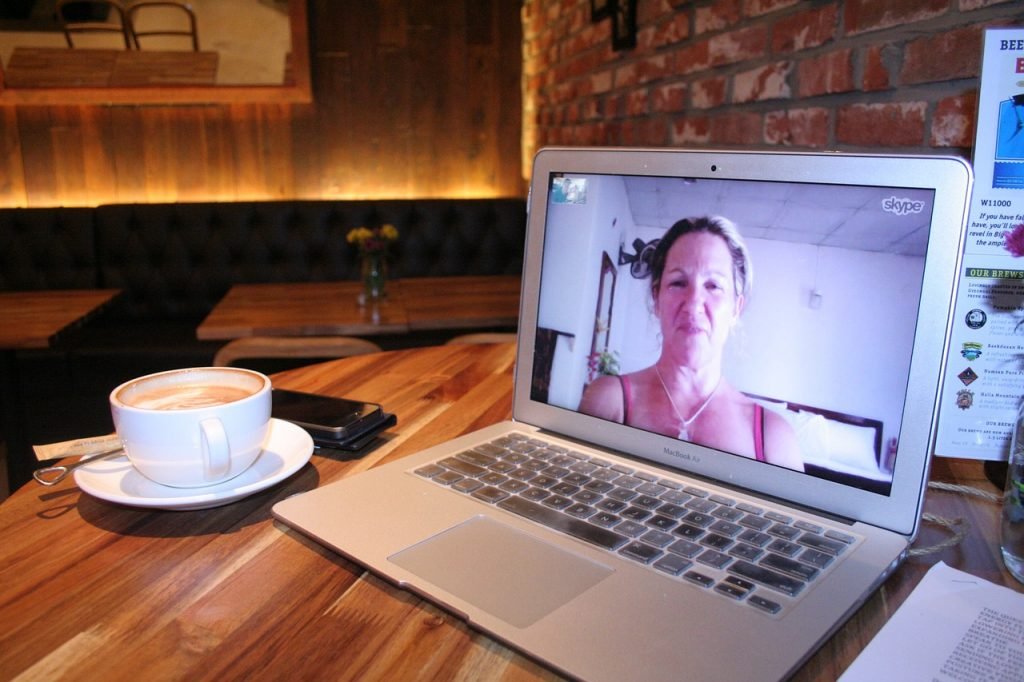
As an increasing number of people relocate abroad for improved employment opportunities and for a better quality of living, families are finding that its technology that keeps them together. Though there are plenty of parents who have bemoaned their children for spending too much time glued to a smartphone or laptop, for many it is services like Skype and WhatsApp that allow an international family model to stay connected.
From “digital nomads” and long-term travellers, to families living in multiple countries, or simply at opposite ends of their home country, there’s a growing community of “Skype families” around the world. Among speculation that events like Brexit could lead to an even more noticeable increase in this trend, let’s look at what it means to be a “Skype family” and how people can make it easier to stay in touch with far-away relatives.
Visa legislation
By 2015, there were already more than 15,000 children growing up as “Skype kids” in the UK alone, due to rules and regulations about adults bringing a foreign spouse to the country. In these instances, children communicate with one of their parents primarily through the internet because while they themselves have citizenship, their mother or father does not.
This is not a situation that is unique to the UK, and citizens of the USA, Australia and many other locations have also faced being split from their families because of tightening rules on visa applications. Despite legally-recognised marriages, couples around the world find that their spouse cannot meet the given requirements and as such, cannot relocate to join them.
It isn’t just adults who are kept apart, either. Some well-publicised examples of the damage that visa rules can do to international families have involved children being prevented from moving with their parents, such as in the case of two American children aged 11 and 13 who were told they couldn’t enter the new home country their parents had planned for them. This was due to a difference in laws for children who have been adopted versus children who are biologically related to their parents, meaning that while their parents and sibling were able to relocate, the two youngest children would have to be separated.
While cases like this one are unusual, the official line from government officials in the UK and USA has often been similar across a range of situations – that families should simply stay in contact through “modern communication channels”.
Far apart by choice
Of course, not everyone who lives across an ocean or border from their family is doing so against their will. In an age of cheap international transport and global working opportunities, many people are choosing to move away from their parents and siblings in order to explore and to forge better careers for themselves.
According to a recent report by Finaccord, there are nearly 60 million expats currently spread out around the world. Many are workers, but a portion of this is also made up of international students and retirees. All of these people are reliant on technology, should they wish to stay in touch with loved ones in their point of origin.
But it is not just families. from business owners looking to expand, to remote workers and freelancers making the most of not being tied to a desk, there are plenty of people who find themselves using video calling to stay in touch. Even backpackers, historically a group who would go off the radar for long periods of time and appear infrequently at internet cafes or on long-distance phone calls, now take it for granted that it will be possible to communicate visually with friends and family through apps like FaceTime and Duo.
Keeping in touch
While some people find themselves spoiled for choice in terms of possible contact methods, not all parts of the world are made equal for those who are living apart. Geo-restrictions on both internet calls and social media can throw a serious spanner in the works for families trying to feel close, along with the rising cost of subscription fees for some online communication services.
For families split among places like Mexico and the UAE, discovering that internet service providers block Skype calls, WhatsApp messages and a host of other VoIP services can come as a shock. Equally, China, Morocco and Malaysia are just a few examples of locations where governments have outright banned certain websites and services.
In these instances, Skype families are forced to find workarounds in order to stay in touch. Virtual private networks (VPNs) can help to keep conversation flowing, giving users the ability to get online via all their usual home services, though it’s worth noting that in China even these are banned, which can make it impossible to keep in contact. Clearly, being told to simply use “modern communication methods” is hardly a solution for those families who are separated unwillingly and who must fight to be stay in contact.
Lasting impacts
It’s thought that long-term separation from immediate family members, when coupled with a lack of easy contact, can be responsible for levels of stress and anxiety which quickly become deep-rooted. For those who have chosen to travel and can return at any time, there is unlikely to be any worry about the separation. But for those waiting in limbo to find out whether they’ll be reunited, the affect this can have on wellbeing is often devastating.
Being able to stay in touch over an online video call or through instant messages is better than nothing, but it’s no match for actually spending time together – particularly for young children. However, unless there is widespread change to international visa policies, for the time being it seems that the number of Skype families in this generation is only going to continue to rise.



